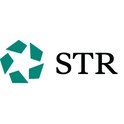US Hotels Have 9 Out Of 10 Of The Guests They Did In June 2019
Revenue Per Available Room Clears 80% of 2019 Levels
For the week of June 12, U.S. hotels had more than 90% of the guests and charged more than 90% of the rates that they did during the same week in 2019, despite lower demand from business travelers and groups.
The latest Market Recovery Monitor report from STR, CoStar’s hospitality analytics firm, shows that U.S. hotels sold 25 million rooms during the week — 1.6 million more than the previous week, and 91% of the room demand recorded during the comparable week in 2019.
U.S. hotel occupancy averaged 66% over the full week, which was the highest level since November 2019. Weekend occupancy was better, reaching 81% on Saturday and averaging 78.8% for the full weekend — higher than the comparable weekend in 2019, and the best weekend occupancy since the fall of 2019. Occupancy averaged above 62% every day but Sunday and Monday.
Including temporarily closed hotels, weekly U.S. hotel occupancy was 63%, the highest since the start of the pandemic in March 2020, and weekend occupancy also set a pandemic-era record at 75%.
For the third consecutive week, average daily rate increased and was better than 90% of what it was in the comparable week in 2019. Weekend ADR was above the 2019 comparable for the third straight week. Hotels in the top 25 U.S. markets had a dragging effect on the ADR index to 2019, with ADR that was about 70% of the levels achieved in 2019.
With the strong week, U.S. hotel revenue per available room was 81% of the level achieved during the same week in 2019. According to STR’s Market Recovery Monitor, the U.S. hotel industry reached “recovery” mode.
More than 72% of all U.S. hotel markets posted RevPAR that was 80% of 2019 levels or better — and 45% of all hotels posted RevPAR that was higher than the comparable week in 2019.
Just under a third of all markets are still in the “depression” or “recession” categories, with RevPAR at 50% of 2019 levels or below. Urban, higher-chain scale hotels with 300 or more rooms continue to post the lowest RevPAR relative to 2019.
Weekly Performance Highlights
Room demand increased in all but six U.S. hotel markets. The biggest decline in demand was in Columbus, Ohio, a week after the city hosted the PGA Tour’s Memorial Tournament.
The Miami market sold more hotel rooms during the week than it did over the same week in 2019, despite demand declining week over week.
The largest gain in room demand was in Chicago, where hotels still sold 35% fewer rooms than they did in 2019.
Overall, nearly 40% of markets had demand at or above 2019 levels; and every market in Florida, except Orlando, and South Carolina outperformed 2019 weekly demand.
Only the New York, San Francisco, Syracuse and Washington, D.C., markets posted weekly occupancy below 50%, factoring in temporarily closed hotels.
Among open and operating hotels in New York, weekly occupancy rose to 62% as room demand increased to its highest level since the start of the pandemic. More than 70% of New York’s open hotels reported occupancy above 60% for the week. In contrast, only 48% of open hotels in D.C. had occupancy above 60%.
Upper-midscale hotels — the largest branded chain scale — had 70% occupancy on a total room inventory basis for the week, the highest among chain scales and the highest level since October 2019. Economy hotels had the next highest occupancy at just under 66%. Occupancy was lowest among luxury (48%) and upper-upscale (51%) hotels. Both chain scales have been hampered by the performance of large hotels in urban locations, where total room inventory occupancy remains in the 40% to 49% range. Excluding those hotels, occupancy for both chain scales would be approximately five percentage points higher.
Across the U.S. and all chain scales, large hotels reached 52% total room inventory occupancy during the week, marking the first time above 50% in more than a year.
Isaac Collazo is VP Analytics at STR.
This article represents an interpretation of data collected by CoStar's hospitality analytics firm, STR. Please feel free to contact an editor with any questions or concerns. For more analysis of STR data, visit the data insights blog on STR.com.
About STR
STR provides premium data benchmarking, analytics and marketplace insights for the global hospitality industry. Founded in 1985, STR maintains a presence in 15 countries with a corporate North American headquarters in Hendersonville, Tennessee, an international headquarters in London, and an Asia Pacific headquarters in Singapore. STR was acquired in October 2019 by CoStar Group, Inc. (NASDAQ: CSGP), the leading provider of commercial real estate information, analytics and online marketplaces. For more information, please visit str.com and costargroup.com.








